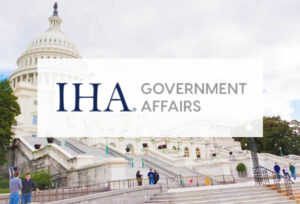by Craig Brightup, The Brightup Group — On Nov. 5, 2025, the U.S. Supreme Court (SCOTUS) heard oral arguments on whether the Trump Administration can use the International Economic Emergency Powers Act (IEEPA) to impose “reciprocal tariffs” on some 200 countries and “fentanyl tariffs” on Canada, Mexico and China. The tariff cases, Learning Resources, Inc. v. Trump and Trump v.…
CONTINUE READINGGovernment Affairs
November Trade and Tariff Updates
by Craig Brightup, The Brightup Group — This edition reviews trade agreements from President Trump’s Asia trip; a new investigation into China’s compliance with previous agreements; adding more International Economic Emergency Powers Act (IEEPA) tariff exemptions; and recent Senate votes rejecting President Trump’s tariffs. President Trump’s Asia Trade Agreements President…
CONTINUE READINGThe Government Shutdown and Federal Programs
by Craig Brightup, The Brightup Group — On Sept. 18, House Republicans passed a “clean” continuing resolution (CR) to keep the federal government funded at Fiscal Year 2025 levels from Sept. 30 – Nov. 21 in order to finish the 12 separate appropriations bills for FY26. On Sept. 19, the CR failed to get the votes needed in the Senate and a competing Democrat bill with some $1.5…
CONTINUE READINGSeptember Tariff Updates
by Craig Brightup, The Brightup Group — Tariff updates since IHA’s August Government Affairs blog include a court decision on IEEPA tariffs, more steel and aluminum tariff categories, steeper tariffs for products from India, an extended China tariff deadline, and progress for the U.S.–European Union (EU) trade deal. Legal Challenge to IEEPA Tariffs As explained in the…
CONTINUE READINGAugust Tariff Roundup
by Craig Brightup, The Brightup Group — On July 31, President Trump announced new reciprocal tariffs on some 70 countries effective on August 7. The following list (Annex 1) is linked to the Executive Order: The European Union and Vietnam On July 28, President Trump announced a trade deal with the European Union, which agreed to purchase $750 billion in U.S. energy…
CONTINUE READINGSix Month Review of Trump 2.0 Policies
Several policy initiatives in the first months of the Trump Administration have caused economic uncertainty affecting businesses. Some have reached closure like the One Big Beautiful Bill Act (H.R 1), which is a positive for IHA members, but tariffs continue to be a thorny issue. The velocity of tariffs imposed by President Trump on nearly all countries has obviously caused…
CONTINUE READINGTariff and Tax Policy Developments: IEEPA and Higher Steel Tariffs
On May 28, 2025, the Court of International Trade (CIT) ruled unanimously to end President Trump’s International Emergency Economic Powers Act (IEEPA) tariffs. The three-judge panel found IEEPA did not grant unbound authority to tax imports from nearly every country around the world. No president had tried to use 1977’s IEEPA for tariffs perhaps because it doesn’t mention…
CONTINUE READINGUSTR’s Final Actions on China Shipbuilding and Port Fees
On Feb. 21, 2025, the U.S. Trade Representative (USTR) requested comments on proposed actions under Sec. 301 of the Trade Act of 1974 to end China’s practices for global domination of the maritime, logistics and shipbuilding sectors. This culminated a year-long investigation that started when five labor unions petitioned USTR to probe China’s grip on shipping and…
CONTINUE READINGIHA Tariff Webinar and New Reciprocal Tariffs
On March 27, the IHA Government Affairs team conducted the webinar, “Tariff Update from Washington, DC,” to provide basic information on President Trump’s tariffs. Executives from freight logistics services provider TQL Global, LLC, also provided their experience with the tariffs. The IHA webinar covered the 25% tariffs on Mexico and Canada; 20% tariffs on China; 25% tariffs…
CONTINUE READING- 1
- 2
- 3
- …
- 8
- Next Page »



